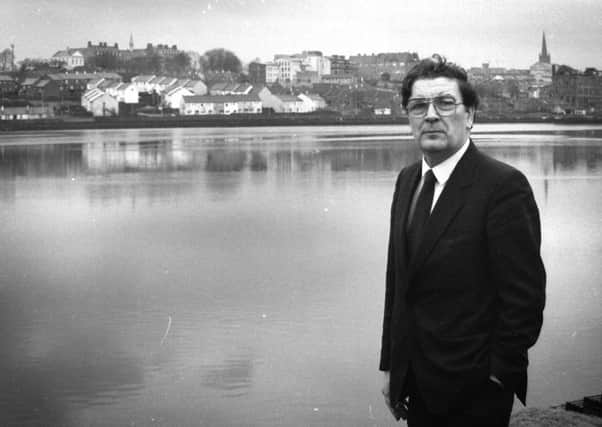Hume ‘faced down the IRA’ - NIO minutes


In another meeting the former SDLP leader told Mr. Brooke he felt the Ulster Defence Association (UDA) was more pragmatic in its approach to politics than the mainstream unionist political leaders.
Formerly confidential minutes of the talks are among documents from 1991 and 1992 that have now been made available by PRONI and the Conflict Archive on the Internet (CAIN).
Advertisement
Hide AdAdvertisement
Hide AdA note of a meeting between Mr. Hume and Mr. Brooke on May 15, 1991, shows that the former Foyle MP was frustrated at being lumped in with all the other “poiticians” by the media due to a lack of progress at the time.
According to the minute, taken by Mr. Brooke’s Private Secretary AJD Pawson,Mr. Hume said he felt that this was unfair.
It records: “He was also concerned about the adverse effect that events were having on the image of all politicians.
“The media kept referring to ‘the politicians’ without distinction. He had fought the IRA for many years, and was now being undermined.
Advertisement
Hide AdAdvertisement
Hide Ad“The problem with the Unionists, as with the Provisionals, was that their leaders were the most extreme. His house had been attacked by the ‘Provos’ nine times, and Mr. McGrady’s [Eddie, the late former SDLP MP for South Down] had also been attacked.
“Nevertheless he had faced the IRA down. The more the current situation was allowed to continue, the more the political process would be undermined.”
In a further meeting on September 16, 1991, to discuss the ongoing political talks process, Mr. Hume was scathing of unionist political leaders.
A note - again taken by AJD Pawson, states: “Mr. Hume said that he wondered whether the loyalists were building a bargaining position.
Advertisement
Hide AdAdvertisement
Hide Ad“He had had three talks with the UDA leaders who were much more sensible about the politics of Northern Ireland than Unionist politicians.
“They were about to suggest proportional representation for all elections, according to [redacted] who was a member of the Ulster Loyalist Co-Ordinating Committee.
“The point needed to be made in public that increased violence was not the answer, as could be seen by what was happening in Yugoslavia. In fact it made the situation worse. The differences between the various communities in Northern Ireland had to be acknowledged, but could not be solved by this method.”